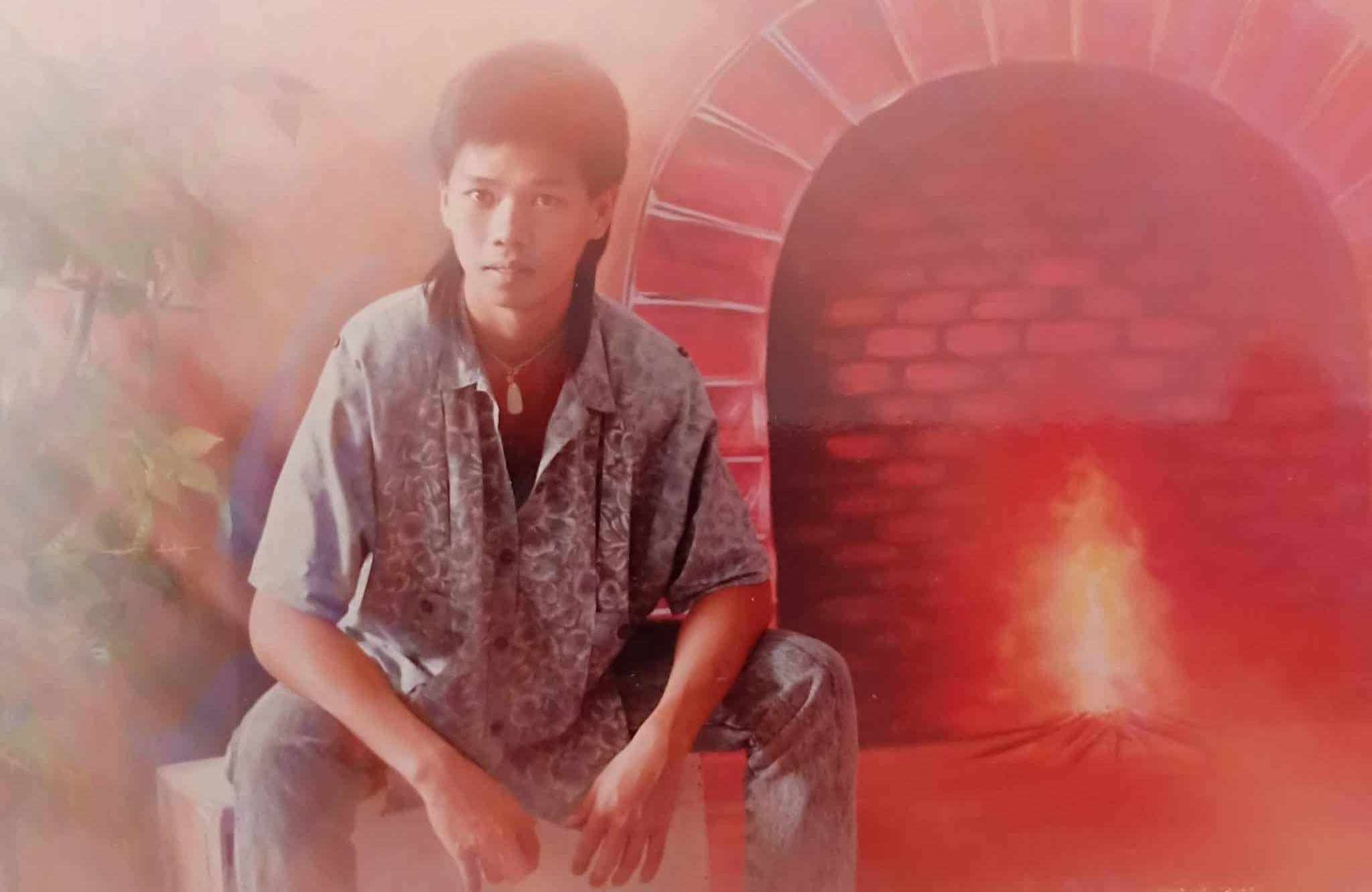Bullied and put down: How one boy became addicted to gaming
by Christine Leow // October 9, 2020, 11:22 am
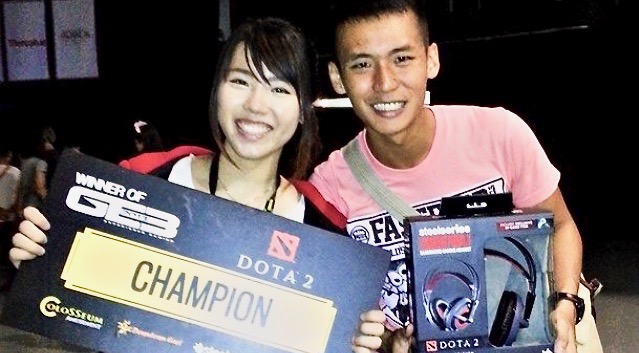
At one point gamer Poh Xing Yong was among the top 200 Dota players in Southeast Asia. But behind the scenes his life was spinning out of control. All photos courtesy of Poh Xing Yong.
Even though it has been nearly two decades, Poh Xing Yong, 28, still vividly remembers the very first video game he ever played.
“It was during my primary school days when my father bought my older brother and me our first computer. I played Neopets,” said Poh who is now a psychologist.
He recalls things were not “out of control” yet.
“I still had friends. I was still passing my subjects. I wasn’t a straight ‘A’ student but I did well enough so that my parents didn’t ‘kill’ me. I still hung out with my brother.”
A friendless world
In upper primary school, he was put in a class where he knew no one.
“I never had many friends but, that year, I went to a class where I didn’t fit in at all.”
“They got their friends from other classes and together they pushed me around, hit me and scolded me.”
His form teacher was his Chinese teacher who often organised Chinese quizzes in class. It did not help that Poh was not good at Chinese.
“We had to form groups to compete and I was a liability. Those who were not in my group would laugh at me while I stood there unable to answer the questions.
“My group mates would be like, ‘You are very stupid!’ I remember those moments clearly. So, I never mixed well with my classmates.”
To make matters worse, Poh became a victim of school bullies.
“Three of my classmates were bullies. They would come to me between classes, during recess, or after school, and beat me up.
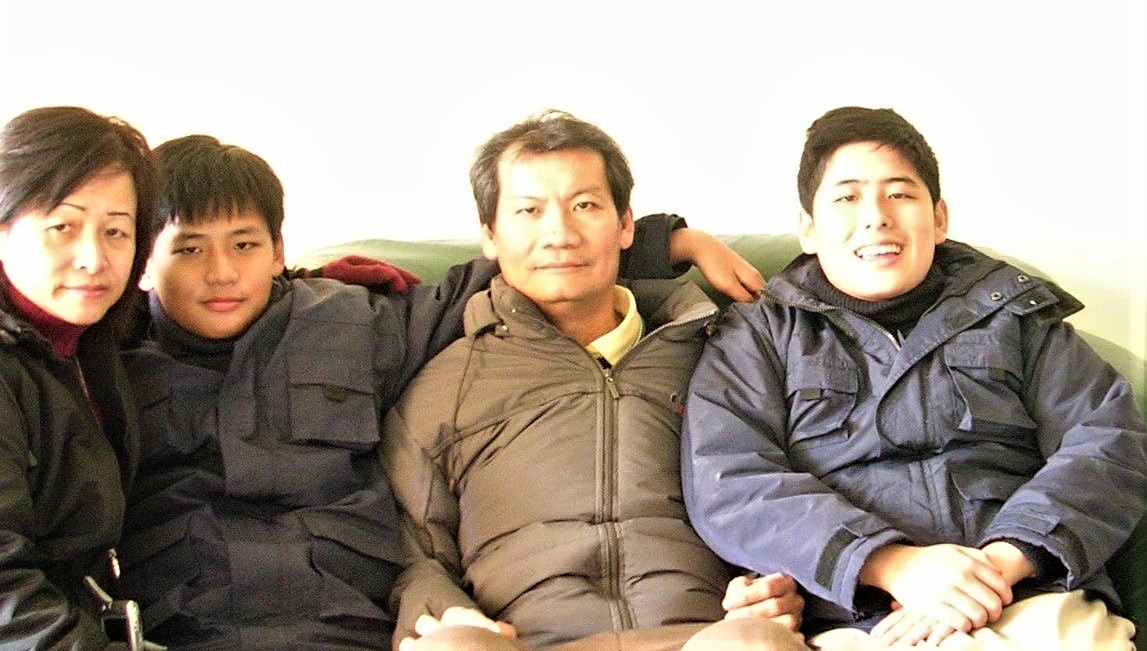
When Xing Yong (second from the left) was given a computer to share with his brother in lower primary school, he got his first taste of video games.
“One occasion I remember very well – they got their friends from other classes and together they pushed me around, hit me and scolded me.”
“Shame (about being bullied) was a big factor and loneliness definitely. That’s when I turned to gaming.”
Things got so bad that Poh once asked his mother for an umbrella on the pretext that it would rain but it was really to defend himself. When the bullies came for him that recess, he was prepared. “I took the umbrella and hit them.”
Poh never told anyone he was being bullied. Both his parents worked and he usually came home to an empty house. Whatever conversations he had with them was usually about how he did in school.
“I had no chance to tell them and I felt that they would see it as my fault. I didn’t tell my teachers either because I didn’t think they would believe me because I wasn’t a good student.”
By then he had also drifted from his brother who was three years older and already in secondary school with a life and friends of his own.
“That’s when I turned to gaming. Shame (about being bullied) was a big factor and loneliness definitely,” said Poh.
Down the rabbit hole
He tried different games, progressing to multi-player online games where he could play with other people. In the virtual world, the boy who did not do well in school and who was often bullied or left on his own could finally be a hero.
“I found that I could be good at something and I was recognised for it. I started to play for really long hours, even past midnight.”
In the virtual world, the boy who did not do well in school and was bullied could finally be a hero.
Gaming became his escape as well as his solace. Because of his training in Psychology, Poh understands why he got addicted to gaming as he looks back on his childhood.
“A lot of times, most well-functioning individuals don’t get addicted. They know when to put the game down and move on with their lives.
“Those who have unfulfilled needs, who don’t function well socially will find games a big draw because, in games, people don’t judge you. They celebrate your achievements.
“There is community. You play with other people and interact with them. You live in a world where everyone has a quest they complete together. You can make friends. And you do things that make you feel powerful like when I get certain achievements or help teammates.”
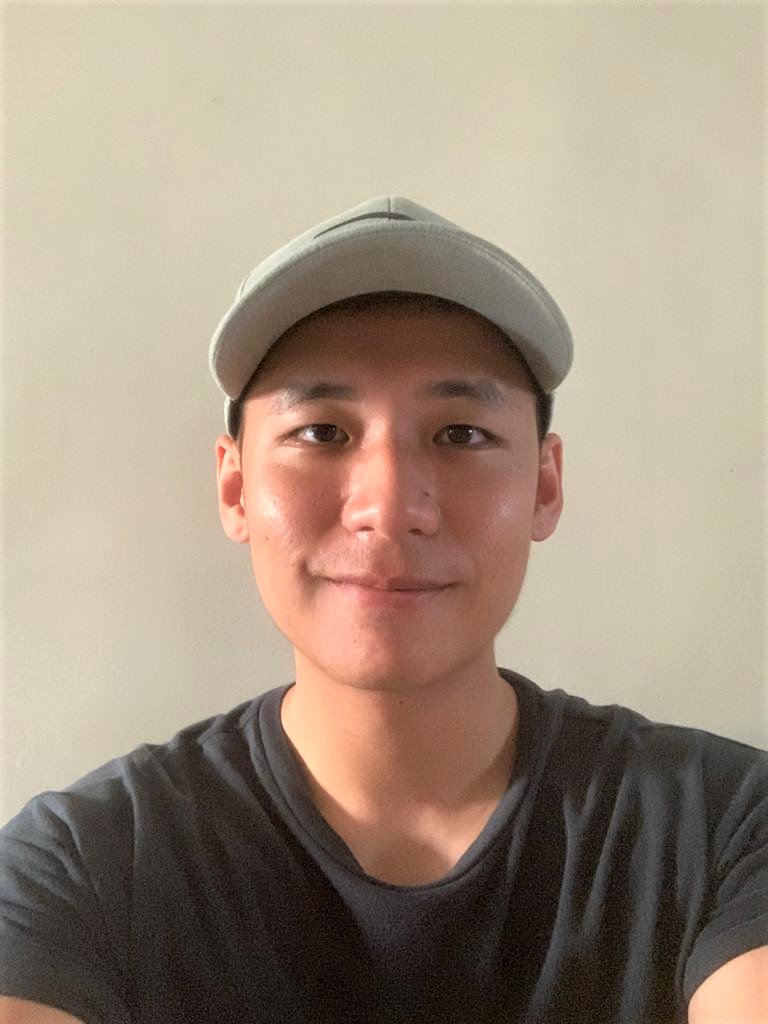
Xing Yong now works as an associate psychologist with Comeback, helping addicted gamers to break their dependency.
Meanwhile, in the real world, things were not looking good. Because of the hours he spent gaming, Poh did not study and scored badly for his PSLE. He ended up in the Normal (Academic) stream in a school that was ranked “top 10 from the bottom”.
“I remember my father telling me, ‘Why don’t you just go and work’. He didn’t mean it but it was his way of expressing his disappointment and anger.”
Momentary relief
In his new secondary school, Poh kept to himself.
“I didn’t know anyone. I was anti-social and shy. I didn’t want to interact with anyone. I just looked forward to playing games.”
“I became one of the cool kids.”
When he had to form groups for projects, he would pick those who were quiet and awkward. “I mingled with the social outcasts.”
In Secondary Two, bullies came for him. Again. This time, the outcome was markedly different.
“I fought back. I managed to stand up for myself. But things escalated. The bullies told other bullies and they approached me. I fought back again.”
His classmates began to see him in a different light. Many came to congratulate him.
“They told me, ‘I respect you. That was so cool. You stood up for yourself’. I became one of the cool kids.”

Playing the drums in church. Being in a Christian community helped Xing Yong get out of gaming during his secondary school days.
He made friends and “sacrificed my gaming time to spend time with them because that was how much they meant to me”.
Eventually, one of his friends invited him to church and Poh became a Christian. Church and cell group meetings replaced gaming.
“I sacrificed my gaming time to spend time with them because that was how much they meant to me.”
He started serving as an usher, picking a ministry that was well outside his comfort zone so he could confront his fear of interacting with people. He had the community he was always looking for.
In school, he discovered a knack for English. “My English teacher would read my compo out in class.”
That spurred him to study hard, for English at least. When he found that he could excel if he put in the effort, he started to work hard on other subjects as well. When he topped his cohort for the ‘N’ levels, “suddenly everyone was looking at me”.
Having gotten the achievement he had always longed for, he was not about to let it go. For his ‘O’ levels, Poh was so determined to do well that he threw away his computer, bought assessments books for practice, and even hired his own tutor.
Lost in the virtual world again
Poh did well enough to earn a spot to study psychology in a polytechnic.
“I had always been curious about how people behaved since I was young. People also told me I was a good listener and they felt comfortable talking to me. So, I just knew I wanted to do psychology.”
Once in the course, though, Poh quickly realised that it was a “whole different ball game”. When he did not do well for his first module, he gave up and returned to gaming.
“I had the drive to achieve but I couldn’t do it in my studies so I went to games instead.
“I skipped school constantly and just shut myself up in the room. Life revolved around gaming. I would play from morning till midnight.”
“I had the drive to achieve but I couldn’t do it in my studies so I went to games instead.”
In church, he felt left out.
“When I was getting back into gaming, I felt that it was not a good thing. When I tried to talk about it to my church friends, they either brushed it off or advised me against it.
“I felt like I was living a double life. I felt I was disappointing God a lot, that I wasn’t good enough for Him. Gaming was seen as sinful and I was gaming. I didn’t think I could give it up. It was a way for me to connect with my secondary school friends. So, there was a lot of shame and I pulled away from church.”
Poh was alone once more. He was not close to his family. Now, he had lost his Christian community as well.
A lasting love and acceptance
But his Christian community did not give up on him.
“My cell group members still tried to keep in touch with me no matter how many times I ghosted them.”
They came to personify God’s love for Poh.
“I felt like I was living a double life.”
“I felt like God should have just given up on me but He didn’t. He always loved me with the same amount of love no matter how much I disappointed Him, and He always welcomed me back even though, as God, He knows I would disappoint Him in the future.”
The love and acceptance touched Poh and were what drew him back to church. Involved once more, he found fewer reasons to return to gaming.
Relationships outside of church also helped. He remembers a tuition teacher who guided him with advice, and a supervisor during his internship as a polytechnic student who encouraged him to press on when he saw that gaming was affecting Poh’s work.
“I felt like God should have just given up on me but He didn’t.”
Poh also recalls a time when his brother reached out to him while he was in the throes of gaming addiction in his polytechnic days, holed up in his room for hours.
“He came in and just asked me about the game instead of scolding me for playing like my family usually does. He was genuinely very curious, genuinely trying to listen.”
This prompted Poh to continue the conversation after the game.
“I was quite happy to talk to him. Slowly, the conversation went from the game to my friends and my life. I was aware of what he was doing but I couldn’t help myself. I just talked and talked.
“At the moment, I was willing to put aside the game, I was willing to listen to him. In those 30 minutes, I talked to him more than I ever talked to him in a whole month.”
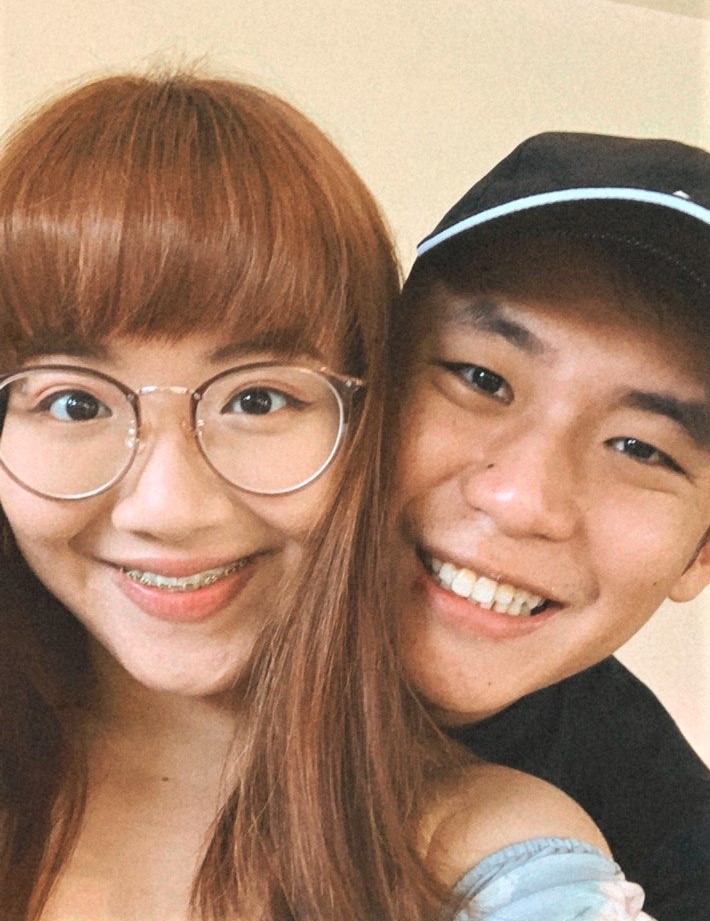
Xing Yong with his girlfriend, Jean Lee. Key to breaking gaming dependency is having healthy relationships, he says.
That encounter has shaped Poh’s understanding of how gamers can be drawn out of their addiction.
“What helps the gamers overcome their dependency is positive relationships. Only when there is a relationship, when there is a channel of open communication, then the strategies and positive influence can follow.”
“People see addiction as a one-time thing that you can get out of but it’s an ongoing struggle.”
With National Service, there was less time to game. Poh’s focus was on getting fit and earning awards in the army. By the time he entered university, the “goals that I could fulfil in reality” made the virtual acclaim from games less attractive.
“Gaming was a means to fulfil certain needs. For me, it helped me fill a need for acceptance and achievement.”
Poh now reaches out to other gamers who are addicted. He works as an associate psychologist with Comeback, a programme that helps gamers out of their game dependency. The youngest he has helped is 14 years old. The oldest is 23.
“People see addiction as a one-time thing that you can get out of but it’s an ongoing struggle. It’s not about the hours. It’s about how you might forsake things just for the game.”
Salt&Light Family Night: My kid is gaming too much, what can I do?
Almost 90% of the cases that Touch Cyber Wellness sees have to do with excessive gaming.
In The State of Online Gaming 2020 global study, 60% of the Singapore respondents have given up sleep, 24.3% skipped showers and 36% missed out on meeting friends just to keep gaming.
Gaming is a part the youth culture but some are gaming more than others. How do you know if your child is addicted? Is there such a thing as safe gaming? How can you help a child who games excessively?
To find out this and more, join hosts and family champions Carol Loi and Alex Tee and their guests:
- Chong Ee Jay
Family Life Specialist, Focus on the Family Singapore & cyber wellness champion - Pauline Phoon
Founder, SOOS OIO and COMEBACK - Peter Tan-chi Jr
CFO, AXEIA & former gaming addict
Date: Tuesday, October 13, 2020
Time: 8.30pm-10pm
Cost: Free
Register at: https://bit.ly/SLFamilyNight13Oct
Why addiction to pornography is so insidious: A counsellor shares the challenges
“God is bigger than chilli padi!”: How the Unlabelled Run is transforming lives
We are an independent, non-profit organisation that relies on the generosity of our readers, such as yourself, to continue serving the kingdom. Every dollar donated goes directly back into our editorial coverage.
Would you consider partnering with us in our kingdom work by supporting us financially, either as a one-off donation, or a recurring pledge?
Support Salt&Light
